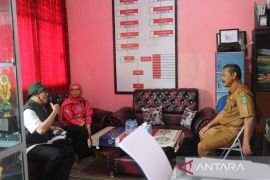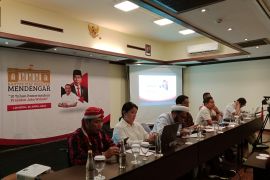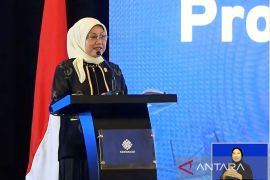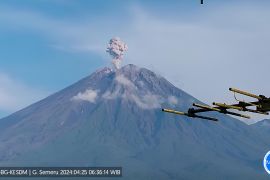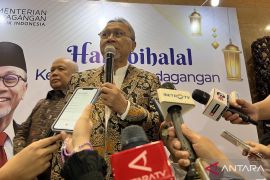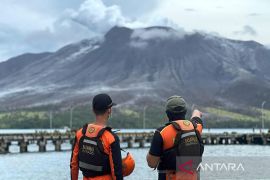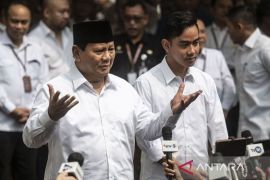The position was conveyed by Indonesia`s Minister of Foreign Affairs Retno Marsudi during the first gathering of the ASEAN Foreign Ministers, under Singapore`s ASEAN Chairmanship in 2018, on Tuesday.
In a press release received on Tuesday, Marsudi conveyed that the Indo-Pacific region, comprising of tropical waters of the Indian Ocean, the western and central Pacific Ocean, and the seas connecting the two in the general area of Indonesia, has become a strategic region for global economic development and peace.
Marsudi encouraged ASEAN to take a step further to contribute to strengthening regional architecture in Indo-Pacific region, which is open, transparent, and inclusive based on the international law.
"Becoming spectators and remaining silent are not the options for ASEAN to address challenges and opportunities in the Indo-Pacific region," Marsudi remarked.
In this regard, ASEAN ministers have agreed on Indonesia`s proposal to organize a 1.5-track meeting to discuss and develop the concept of regional architecture in the Indo-Pacific region.
"Amid the geo-politic and geo-economic shift and the dynamics in Indo-Pacific region, ASEAN should continue to contribute and innovate, as well as continue to interact with the world, to keep showing its centrality," Marsudi revealed.
During the AMM Retreat, ASEAN foreign ministers also reaffirmed their commitment towards maintaining and promoting peace, security, and stability in the region.
The position was conveyed in a statement by the Foreign Minister of Singapore, Vivian Balakrishnan, at the closing event of the ASEAN Foreign Ministers` Retreat that he chaired on Tuesday.
Balakrishnan, in a press statement on Tuesday, stated that the ASEAN ministers had also reaffirmed their commitment to the peaceful resolution of disputes, including full respect for legal and diplomatic processes, without resorting to the threat or use of force, in accordance with the universally recognized principles of international law, including the 1982 United Nations Convention on the Law of the Sea (UNCLOS).
Marsudi conveyed that the resilience of people or community needed the existence of peace, democracy, and respect to human rights
ASEAN`s resilience to transform into a prosperous society within one ASEAN community cannot be separated with its achievement in the last 50 years in creating a peaceful, stable, and prosperous ecosystem in the region, Marsudi noted.
However, maintaining and promoting peace, development, and democracy remained a challenge in the region, she added.
"Peace is a precondition for development. However, people also need freedom to progress and to express," she remarked.
During the meeting, ASEAN foreign ministers also emphasized the importance of maintaining and promoting peace, security, stability, safety, and freedom of navigation in, and overflight above, the South China Sea and recognizing the benefits of having the South China Sea as a sea of peace, stability, and prosperity.
"We reaffirmed the need to enhance mutual trust and confidence, exercise self-restraint in the conduct of activities, avoid actions that may further complicate the situation, and pursue peaceful resolution of disputes in accordance with international law, including the 1982 UNCLOS," the chairman stated.
Furthermore, ASEAN ministers emphasized the importance of non-militarization and self-restraint in the conduct of all activities by claimants and all other states, including those mentioned in the Declaration of Conduct, which could further complicate the situation and escalate tensions in the South China Sea.
(T.A059/A/KR-BSR/B003)
Reporter: antara
Editor: Heru Purwanto
Copyright © ANTARA 2018

